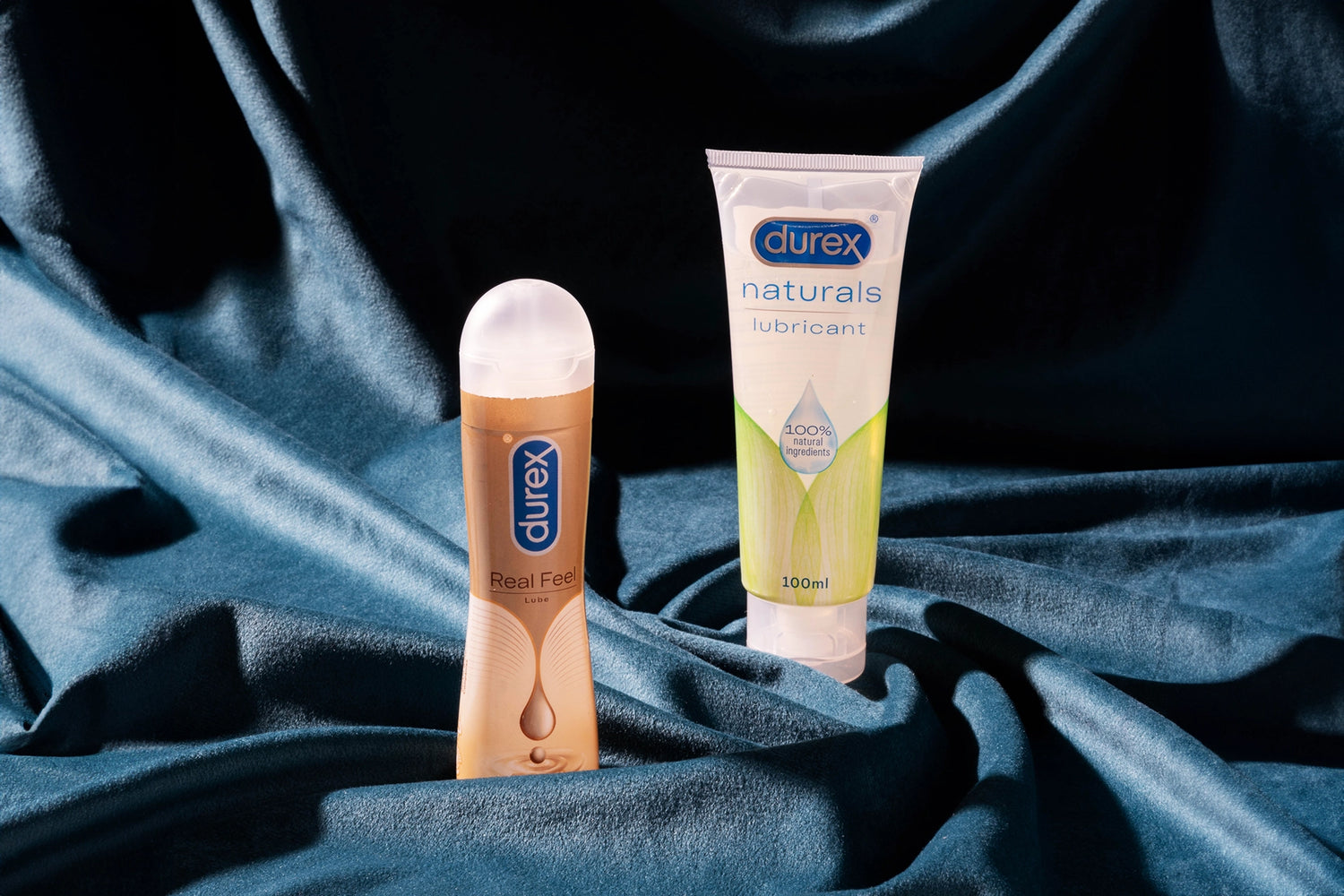STI's - All the Facts
Find out about Sexually Transmitted Infection's (STI's) - symptoms and treatment...
Thrush
What is it?
Thrush is a condition caused by a mostly harmless yeast which lives on human skin, the mouth, gut, and vagina.
This yeast can sometimes grow out of its normal proportion, more than it should.
How is it spread?
You can get thrush from unprotected sex, though there are other ways, too.
What are the symptoms?
There may not be any visible signs and symptoms of thrush, but the condition can cause discomfort in the genital area, for both men and women.
In women:
- It causes a thick vaginal discharge that looks like cottage cheese and smells foul
- There may be itching or redness around the vagina, vulva or anus
- A swollen or painful vulva
- Pain during sex or when urinating
In men:
- A burning or itching sensation under the foreskin or penis tip
- Redness/red patches on the penis tip or under the foreskin
- Discomfort when pulling back the foreskin
- Thick, cheesy deposition under the foreskin
- Pain or discomfort when urinating
How can I get rid of it?
Treatment for thrush is simple and straightforward.
Men are often prescribed a cream to apply on the infected areas. Women may also be prescribed creams as well as pessaries (a tablet to insert inside the vagina) which are used like tampons.
The genital area must be washed only with water to relieve the itching and redness. Avoid using soaps in the area and stay away from bubble baths till the infection clears. Both partners must undergo treatment to stop the infection from recurring.
Thrush proliferates in a warm and moist environment. If you have recently developed thrush, make sure you:
- Don't wear tight pants or non-cotton underwear
- Don't wear Lycra leggings or denim jeans
- Don't use perfumed soaps, genital washes or deodorants in the infected area
- Avoid taking antibiotics till the infection clears
- Use a condom so you don’t infect your partner
Gonorrhoea
What is it?
It is a condition caused by a virus that thrives in the warm, moist areas such as the vagina, cervix, urethra, rectum and the throat.
How is it spread?
It is transmitted through unprotected anal, vaginal or oral sex. It can even spread from sharing sex toys that are not washed after use.
What are the symptoms?
In women:
- A heavy and unusual vaginal discharge that is thin and yellowish or greenish in colour
- Pain while urinating
- An infection in the rectum or eyes
- Throat infection
- Lower abdominal pain or tenderness
- Heavier periods or bleeding between two cycles
In men:
- Greenish, whitish or yellowish discharge from the penis
- Pain while urinating
- Infection in the rectum or the eyes
- Throat infection
- Testicle pain or tenderness
- Inflammation in the foreskin
How can I get rid of it?
The doctor can carry out a few tests before prescribing treatment. When caught early, it can be cured with a course of antibiotics. Get your partner also treated to avoid recurrence.
Use a condom to reduce chances of contracting it.
HIV
What is it?
HIV is a deadly virus that attacks the human immune system. Once it takes up residence inside the immune system, it becomes a permanent condition.
How is it spread?
The virus cannot survive for long outside the body, especially when exposed to strong light or high temperature.
It can only be passed by the exchange of bodily fluids with an infected person:
- Via sperm or vaginal fluids when having unprotected peno-vaginal, peno-anal or oral sex. It can also be transmitted by sharing sex toys with an infected person
- It can be transmitted through blood transfusion received from an infected person, or sharing used needles
- Via breast milk to the new-born child when the mother carries the virus. The infected mother can also pass on the virus to her child during pregnancy
- No evidence supports that the virus can be transmitted by sharing toilet seats, the same crockery and cutlery, French kissing or swimming pools
How can I get rid of it?
Only an HIV test can tell if you or another person has the virus. The virus takes up to three months to show up after infection, so tests taken immediately after sex may not be conclusive. Some people carry the virus for years and not fall ill or look unhealthy, but others are felled by it much sooner.
The HIV virus attacks the body’s T cells in the bloodstream. As the number of T cells reduce, the immune system becomes weaker and falls prey to the dreaded AIDS (acquired immunodeficiency syndrome). This is a fatal disease.
Use a condom to reduce your chances of getting HIV.
Chlamydia
What is it?
Chlamydia affects both men and women.
It can have serious implications for women – once transmitted to them, it can lead to Pelvic Inflammatory Disease (PID), which results in infertility and may cause difficulty in having children.
How is it spread?
It spreads through unprotected sex with an infected person. Most people who contract may not even know it, because it does not exhibit any symptoms in 70 to 80% people.
What are the symptoms?
- Frequent urination and a burning sensation while passing urine.
- For men, a thin, cloudy discharge oozes out from the penis, mainly seen first thing in the morning. It is different than semen. Men may also notice painful, slightly swollen testicles.
- An abnormal, heavy discharge from the vagina, anus or urethra.
- Many people carry the infection without noticing any symptoms.
- Infected women may bleed between their periods or during sex.
How can I get rid of it?
Normally, a course of antibiotics prescribed by the doctor can cure it.
Use a condom to reduce your chances of getting it.
Genital Warts
What is it?
Genital warts are caused by the HPV virus. These warts are seen on the pubic area, particularly the vagina, cervix, vulva, penis, anus, rectum or urethra.
How is it spread?
It is spread during unprotected sex, or by skin contact with the infected areas.
Women infected by HPV must seek immediate intervention from a doctor because the virus may lead to pre-cancerous cells in the cervix. Some types of HPV may lead to cervical cancer.
Regular smear tests help in detecting the virus and this can prevent the cervical cancer from developing.
What are the symptoms?
Most people do not develop visible warts. In many cases, the virus subsides on its own.
People who develop warts notice fleshy growths on the skin, accompanied by a burning sensation or itching in the genital area.
How can I get rid of it?
It may take a while to get rid of them, though treatment is simple.
There are a variety of treatments available such as:
- Laser treatment
- Freezing
- Surgery
- Prescriptive drugs – creams or liquids
Use a condom to reduce the chances of getting it.
*HPV does not pass through a condom. However, a condom does not protect the entire genital area, so some possibility of skin infection despite wearing a condom persists.
Syphilis
What is it?
It is an organism that infects the blood and other bodily fluids. If not treated in the early stages, it can progress into a serious disease.
How is it spread?
It spreads via unprotected sex or by sharing sex toys with an infected person. It also spreads by direct skin contact with a person suffering from syphilis sores or rash.
What are the symptoms?
There are three stages of infection:
First Stage – a couple of sores appear on the vagina or penis, or sometimes in the mouth and anus. These sores are seen about two weeks after infection. They last for about six weeks and are very infectious.
Second Stage - A rash appears on the body within two to six months of the infection.
Flu-like symptoms (fever, headache and sore throat) are experienced.
Flat, warty growths appear on the vulva in women, and around the anus in both sexes. They may not be noticeable, however.
If not treated:
Third Stage – The heart, brain and other vital organs may be permanently damaged, leading to a fatality.
The final stage is quite rare and is seen only after many years have elapsed since the first infection, and when the condition has not been treated.
How can I get rid of it?
Antibiotics are prescribed to clear the infection. It is necessary that both partners get treatment so as to avoid a recurrence.
Use a condom to reduce the chances of getting it.
Hepatitis
What is it?
Hepatitis is a condition resulting in the inflammation of the liver. It is seen in many forms. The type of hepatitis one gets depends on the duration of the illness and how resistant the virus is.
How is it spread?
It is transmitted via unprotected sex with an infected person. It can also spread by contact with infected blood, bodily fluids or through the faecal-oral route.
What are the symptoms?
Some people may carry the infection for years but exhibit no symptoms but still carry the virus. This results in them infecting others.
Hepatitis B takes between six and 23 weeks to settle after the first infection.
The main symptoms connected with hepatitis are:
- Jaundice – it makes the skin look yellowish
- Abdominal pain or discomfort, vomiting, high fever, nausea
- Flu-like symptoms, cough, sore throat
- Dark, smelly urine and pale stools
How can I get rid of it?
Some forms of hepatitis are treatable, and the treatment varies as per the type of hepatitis.
Doctors specialising in liver and digestive problems can treat the condition. The treatment takes several months, depending on the severity of the infection. Since it is so easy to spread to others, infected persons are advised to practice safe sex.
Use a condom to reduce your chances of getting it.
Trichomoniasis
What is it?
Trichomoniasis or TV is an infection caused by a parasite found in the vagina and men’s urethra.
How is it spread?
It spreads via unprotected sex with an infected person.
What are the symptoms?
This infection affects more women than men. Women tend to pass the disease through sexual contact or by sharing sex toys and not washing them after use.
At least half of men and women infected by it will not show any symptoms. The symptoms usually start showing up within a month of contracting the disease.
The main symptoms are:
- Thin and yellowish or greenish vaginal discharge, with a fishy smell
- A sore or itchy vagina
- Pain or discomfort when urinating
- Soreness in the penis or unusual discharge
How can I get rid of it?
A course of antibiotics rids the body of the parasite. Avoid sexual contact until the treatment is complete.
Use a condom to reduce your chances of getting it.
Herpes
What is it?
It is a viral infection that attacks the nervous system in humans. It belongs to the same family of viruses as chicken pox, shingles and glandular fever.
Genital herpes is caused by the herpes simplex virus.
There are two types of the virus. Type I often causes cold sores around the mouth and nose. Meanwhile, Type II causes sores in the genital and anal area. These can also transfer to the mouth.
Herpes lurks in the central nervous system and so it breaks out when one is unwell or stressed out.
How is it spread?
Genital herpes can pass between the genital area and mouth through:
- Oral, vaginal or anal sex with an infected partner when they are infected with herpes
- Coming in contact with a partner's infected mouth/vagina/penis/anus then touching your mouth/genitals. It also spreads through sharing infected sex toys.
What are the symptoms?
Many people do not show any signs or symptoms of the disease
It strikes both men and women, and show one or more of these symptoms:
- Stinging, soreness, itching or tingling in the genital or anal area
- Ulcers, soft boils or blisters on the cervix and vaginal discharge
- Pain during urination
How can I get rid of it?
There is no cure for this virus.
But regular treatment can help control further outbreaks.
Use a condom to reduce your chances of getting it.







